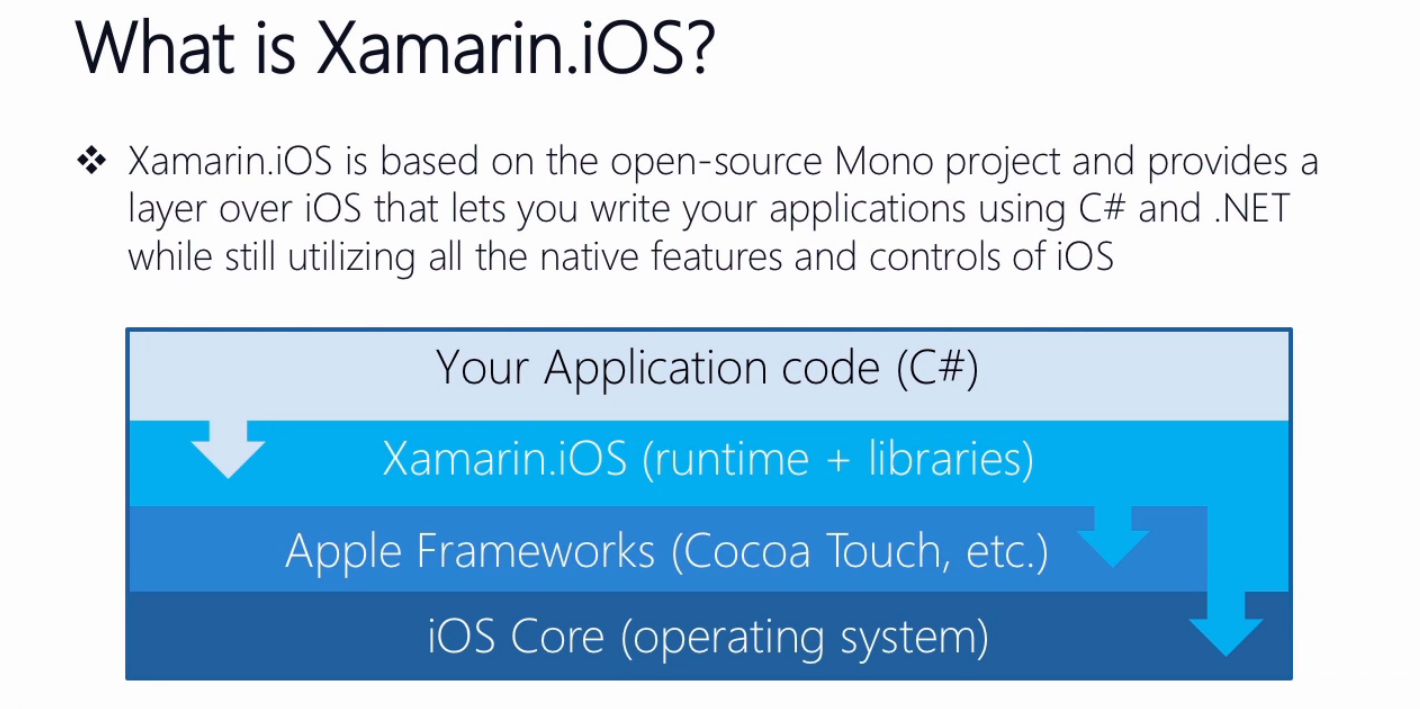Apple iOS SDK Alternatives
Posted by Davzo Inc
Posted in Development
Apple Inc. provides an iOS SDK (Software Development Kit) which allows developers to create native applications for iOS, Apple’s mobile operating system. The SDK was originally released in February of 2008, and was formerly known as the iPhone SDK. It is free to download the SDK, although a fee is charged to enroll in the iPhone Developer Program, which is required in order to publish applications. The iOS Developer Program License originally only allowed applications developed using the iOS SDK to be published to the App Store, which discouraged developers from developing using other development tools. However as of 2010, Apple has relaxed the terms of the iOS Developer Program License, allowing some other development tools and alternatives to the iOS SDK to become viable. Many popular platforms are still not permissible alternatives, although this may change in the future.

.NET/CLI
Even the relaxed restrictions of the iOS Developer Program License do not allow the installation of runtimes such as the .NET Framework on an iPhone or other iOS device. However, there are permissible products that attempt to provide very similar functionality in a way Apple permits. In particular, Xamarin, a Microsoft owned software company, provides a product called Mono with a variant called MonoTouch. MonoTouch enables the compilation of CLI bytecode used in .NET applications as ARM machine-code, which can run can run natively on iOS.
Flash
Mobile versions of Flash were discontinued in November 2011, making this a depreciated alternative to consider. Before this date, Flash was a partially viable alternative to the iOS SDK for app development. Adobe created a compiler that was included with their Creative Suite 5 release of Flash related tools; this compiler allowed Flash applications to be compiled ahead of time so they could be run as standalone apps on iOS. However, at the time the iOS Developer Program License restricted publishing of apps not originally written in C, C++ or Objective-C to the app store; since apps originally written in any language could be compiled with the Flash compiler, this served as a barrier to Flash-based applications entering the iOS application environment.
Java
The iOS Developer Program License requires that all applications use only the built-in interpreters and Apple APIs, and iOS does not currently include a Java interpreter, which prevents Java from being a usable alternative to the iOS SDK for any development. However since all ARM9 and newer processors include Jazelle support to hardware accelerate the execution of Java code, Apple may allow for the addition of a Java interpreter in the future.
Works Cited
Kerris, Natalie, and Trudy Muller. "Statement by Apple on App Store Review Guidelines." Apple. Apple Inc., 9 Sept. 2010. Web. 22 Apr. 2015. http://www.apple.com/pr/library/2010/09/ 09Statement-by-Apple-on-App-Store-Review-Guidelines.html.
Parr, Ben. "Adobe Announces Flash Support for IPhone (But Only for Apps)." Mashable. N.p., 05 Oct. 2009. Web. 22 Apr. 2015. http://mashable.com/2009/10/05/iphone-flash/#zqvheL0WFaqs.
Have An Idea For an Apple tvOS App? Don’t Start Before You Read This
Making its first appearance in the 4th generation of the Apple TV, tvOS is an iOS-inspired operating system optimized for the large screen. Thanks to tvOS, you can now create dedicated apps for
How Much Does It Cost To Develop an iOS App?
If you had to buy a smartphone, which one would you choose: a smartphone that costs $100 or $1000? Obviously, the price you are going to pay highly depends on what you expect to get. The same i
Does iOS HomeKit Have What It Takes To Win The Smart Home Market?
The smart home market is expected to grow to a whopping $58.68 billion by 2020, according to the Smart Homes Market - Trend and Forecast to 2020 report. That’s not surprising when you consider